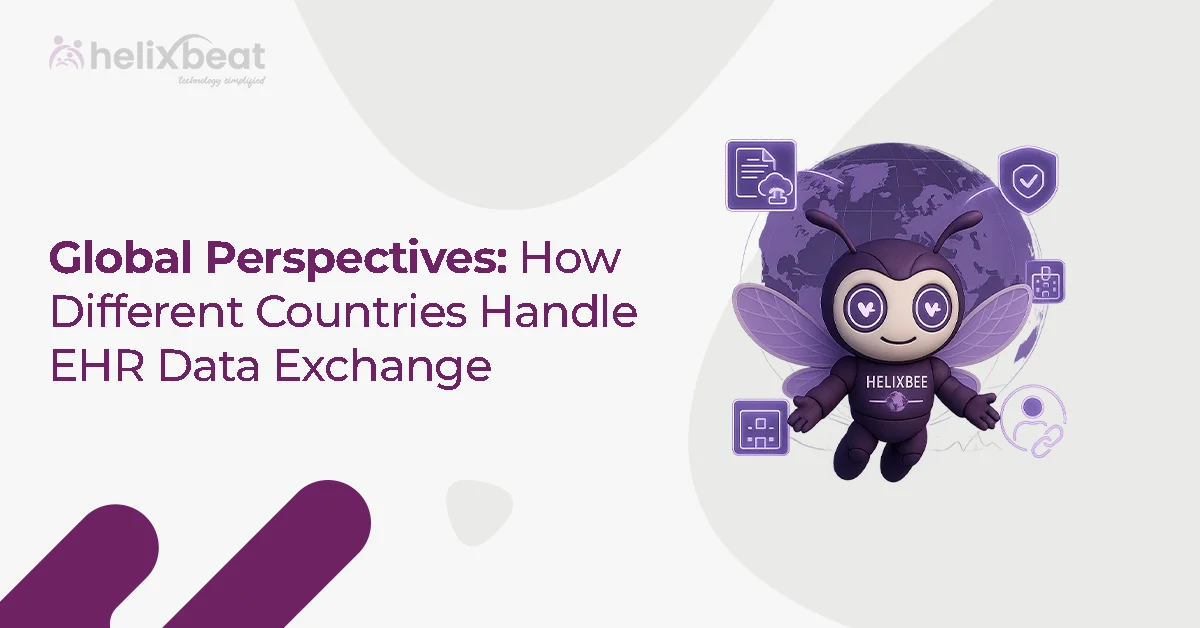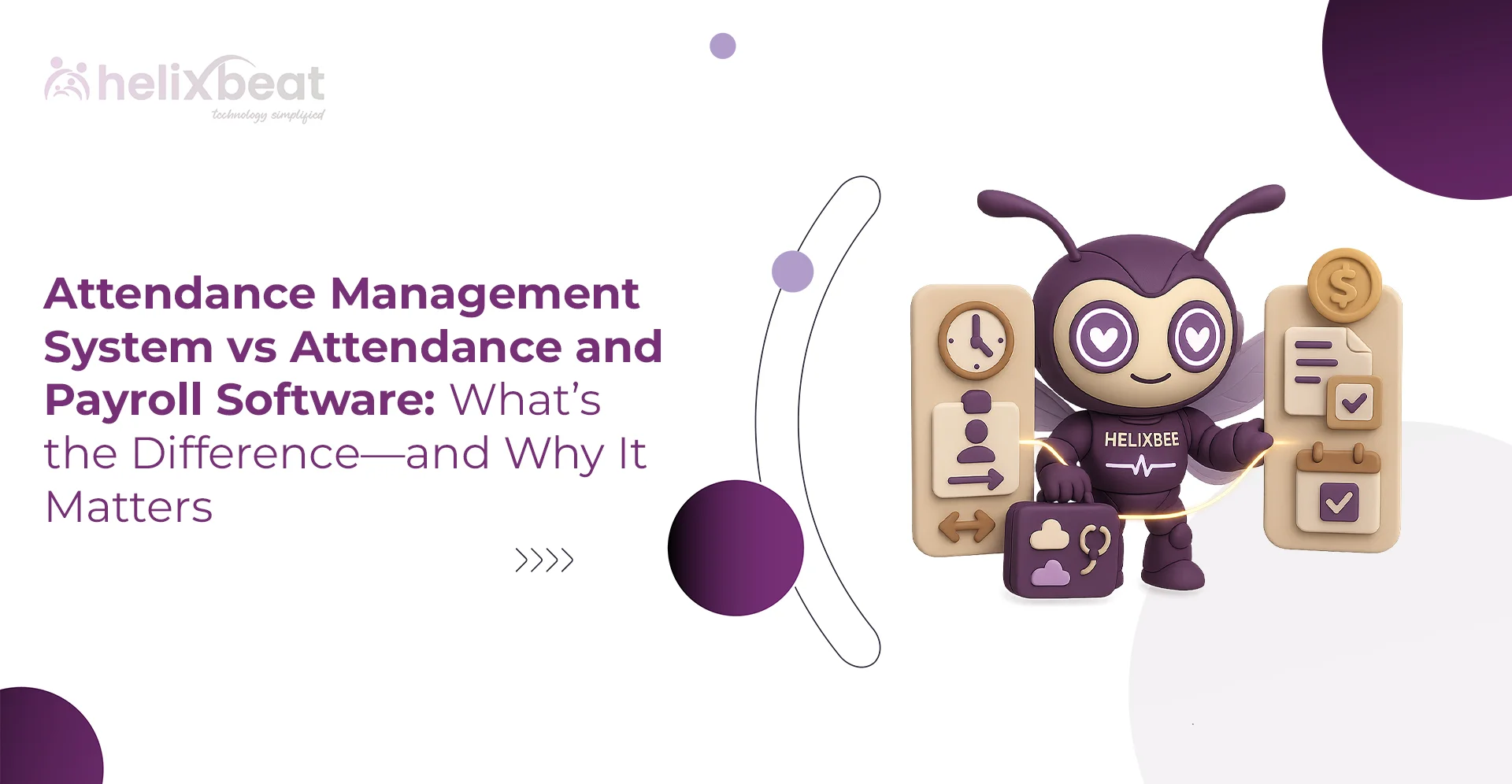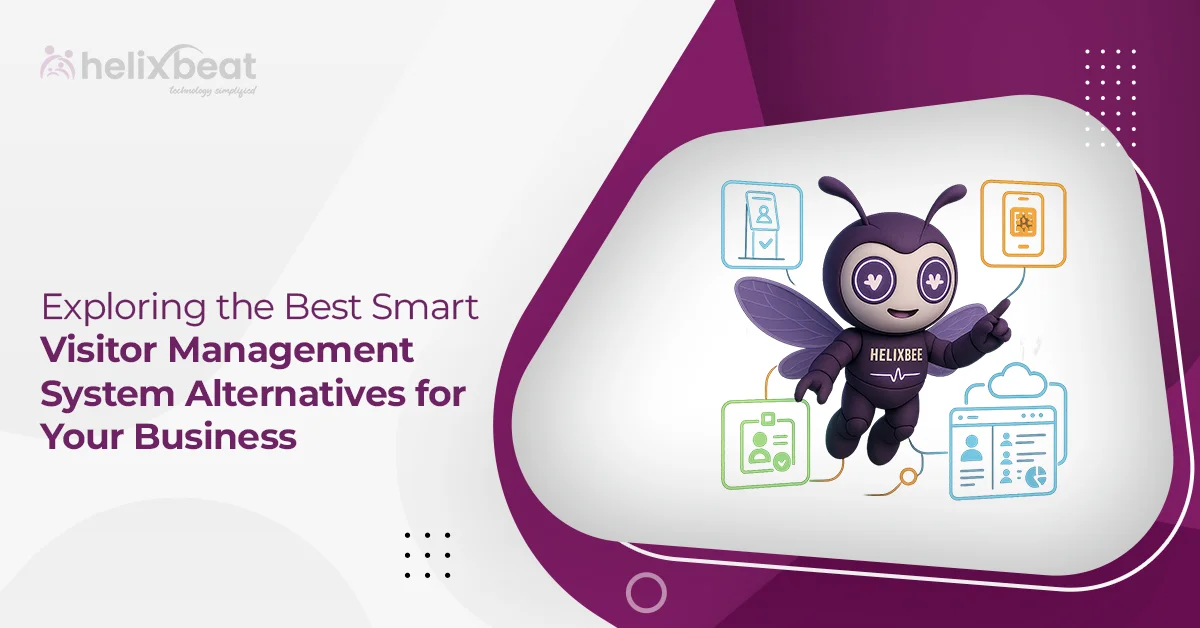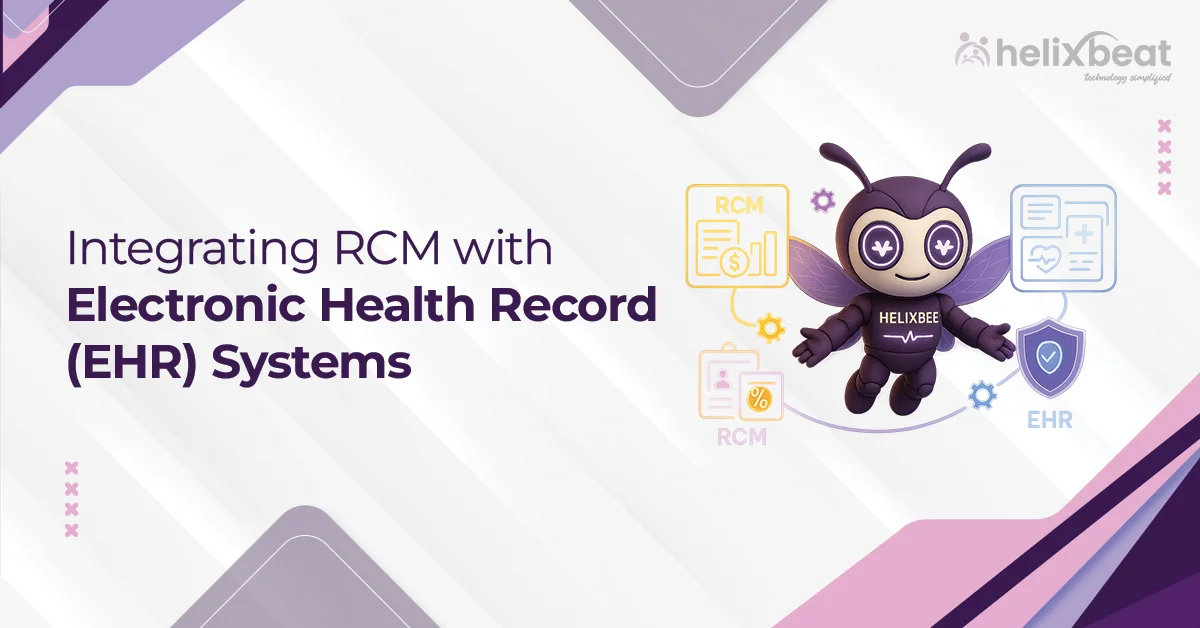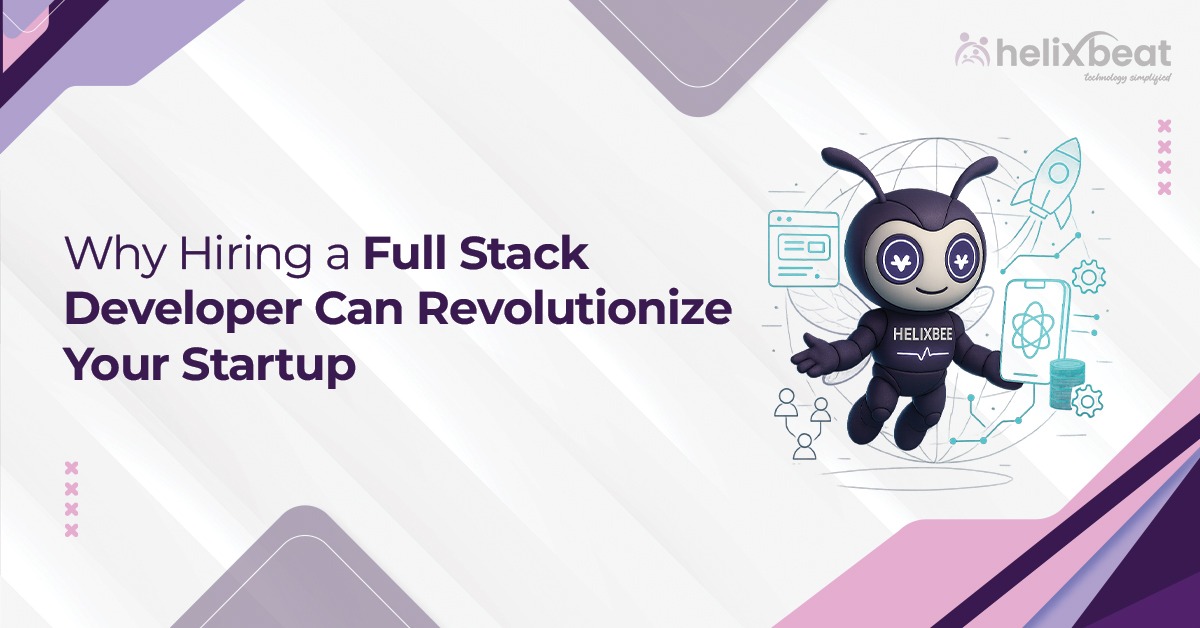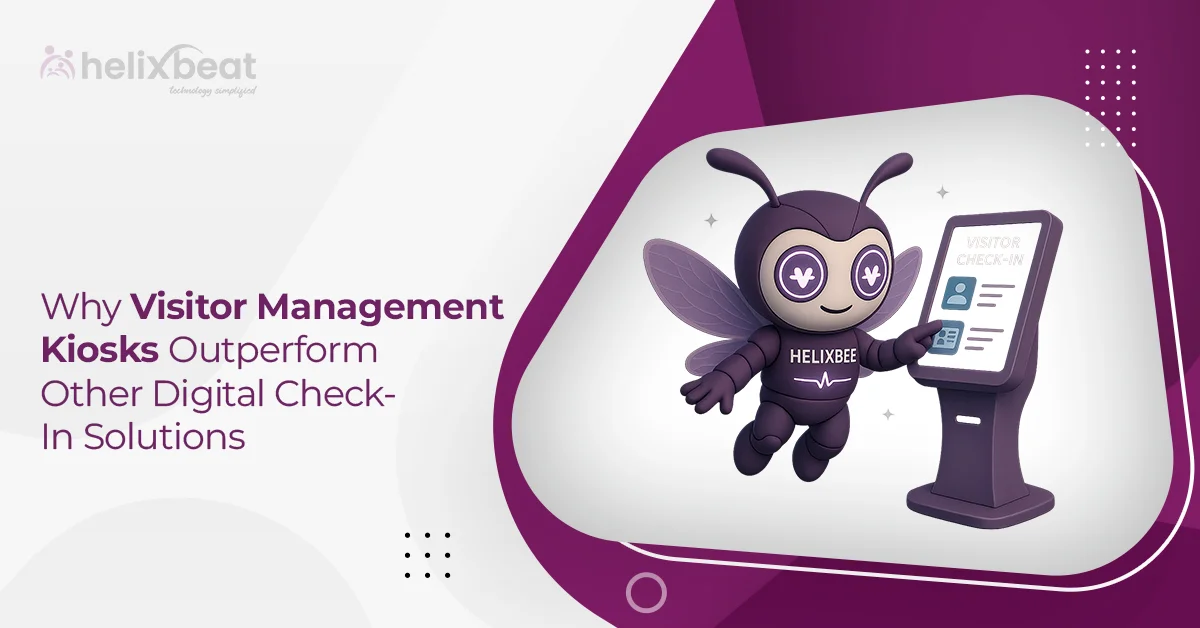The evolution of Electronic Health Record (EHR) systems is revolutionizing healthcare like never before. As technology races ahead, doctors, patients, and policymakers are stepping into an era where medical data flows seamlessly, decisions are powered by real-time insights, and patient care becomes more personalized than ever. What was once a static repository of information is now transforming into a dynamic, intelligent system that reshapes the way healthcare operates.
In this blog, we’ll talk about the latest trends in EHR technology and explore how they’re set to redefine the future of healthcare.
Table of Contents
1. AI-Powered Electronic Health Record systems
EHR platforms are increasingly leveraging AI to improve workflow efficiency and decision-making. AI-driven tools are assisting healthcare professionals in analyzing large datasets and automating routine administrative tasks.
How This Will Change Healthcare:
- AI-powered clinical decision support systems (CDSS) will analyze patient data in real-time and help doctors identify potential health risks before they escalate.
- Automated voice recognition and natural language processing (NLP) will allow physicians to dictate notes and reduce manual documentation efforts.
- Predictive analytics will enhance personalized treatment plans by identifying patterns in patient histories, genetics, and environmental factors.
Therefore, AI integration in Electronic Health Record systems can boost proactive healthcare, thus facilitating early intervention and improving health outcomes.
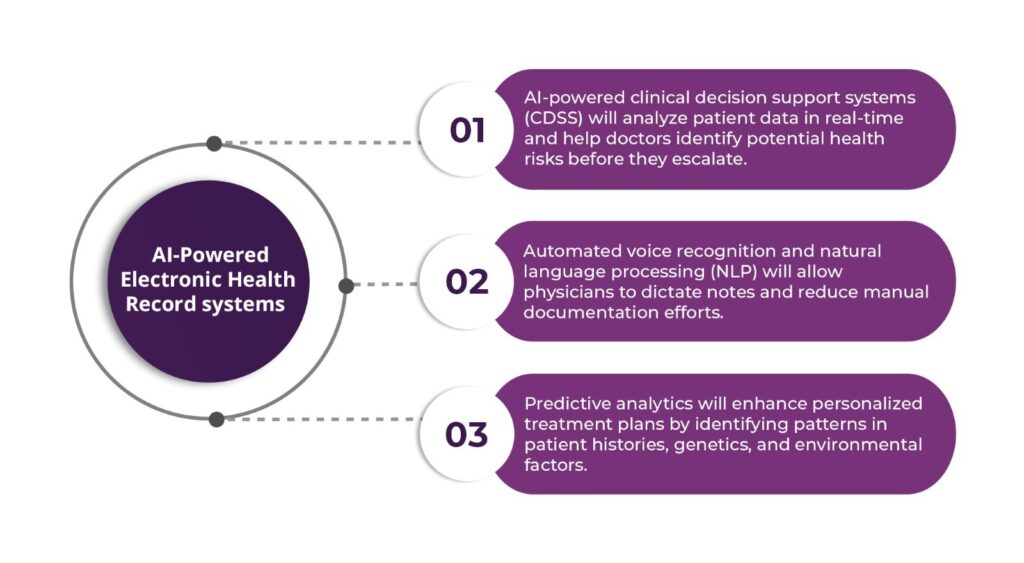
2. Distributed Ledger Technology for Data Security and Interoperability
Securing patient records is a top priority due to increasing cyber threats. DLT is emerging as a game-changer, offering tamper-proof data storage and seamless information exchange between healthcare institutions.
How This Will Change Healthcare:
- Patients will have full control over their data.
- The distributed ledger will eliminate unauthorized data alterations and reduce fraud or errors.
- DLT-enabled smart contracts will streamline financial transactions with automated insurance claims and billing.
Therefore, integrating DLT will strengthen trust in Electronic Health Record systems.
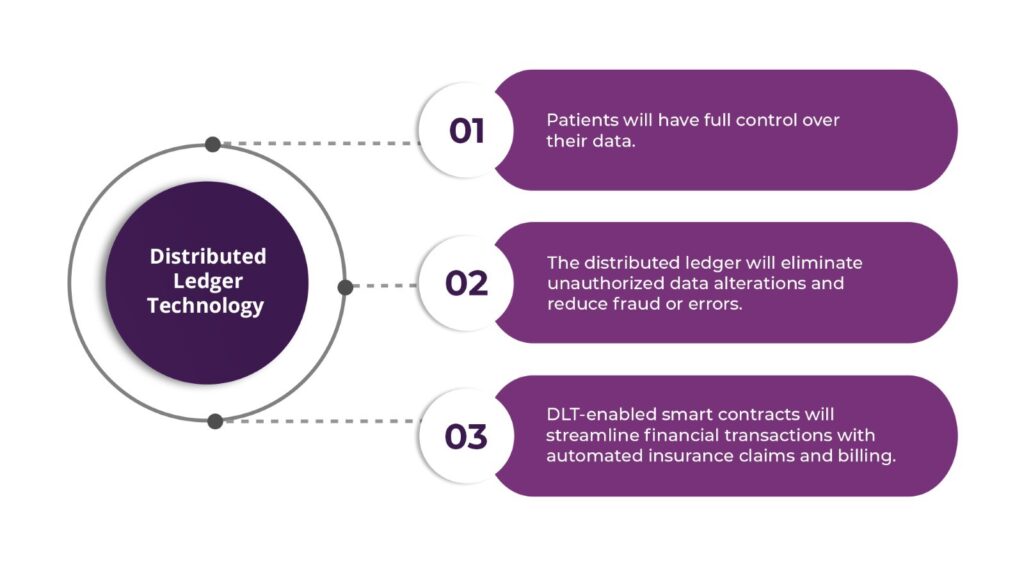
3. Cloud-Based EHR Systems
Traditional EHRs often operate in isolated environments, which makes data exchange between providers difficult. However, cloud-based EHR solutions are emerging as the preferred alternative, offering secure, scalable, and flexible access to patient information.
How This Will Change Healthcare
- Instant access to patient data across different hospitals, clinics, and specialists will improve coordination and reduce redundant tests.
- Remote patient monitoring (RPM) will allow continuous tracking of chronic conditions and reduce unnecessary hospital visits.
- Faster system updates and backups will improve reliability and reduce downtime.
With cloud-based EHRs, patient data will become more fluid, accessible, and usable, which will create a more connected healthcare ecosystem.
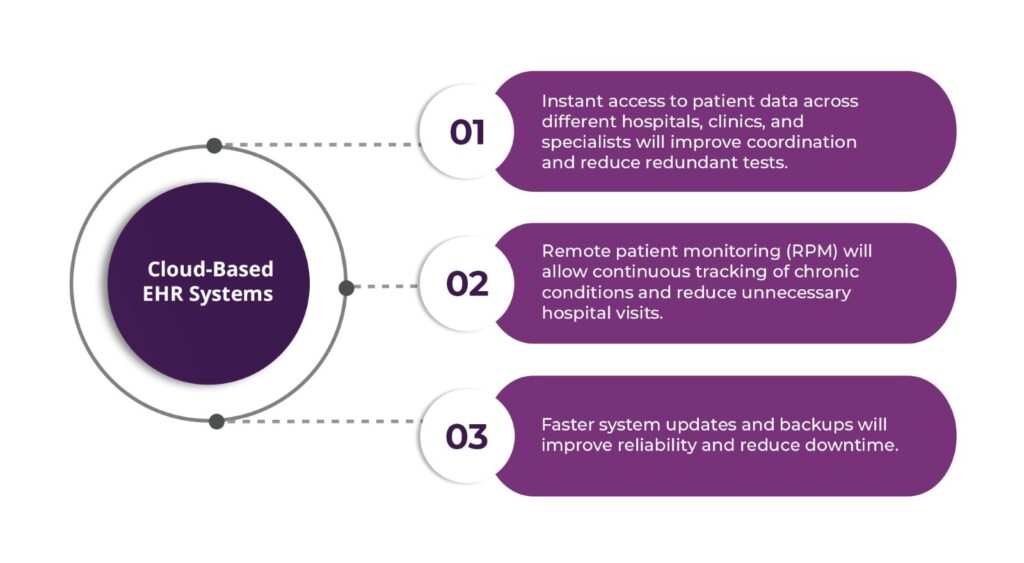
4. Interoperability Standards
One of the biggest challenges in healthcare today is the lack of interoperability between different Electronic Health Record systems. However, FHIR (Fast Healthcare Interoperability Resources) addresses this issue, facilitating smoother integration between hospitals, clinics, pharmacies, and laboratories.
How This Will Change Healthcare:
- Unified patient records will allow different providers to access complete medical histories.
- Reduced administrative burden as staff won’t need to manually transfer records or deal with compatibility issues.
- More accurate prescriptions and treatments, as healthcare professionals will have a clearer view of a patient’s medical background.
With better interoperability, healthcare will shift toward a more patient-centric model, where records follow the individual rather than being confined to a single institution.
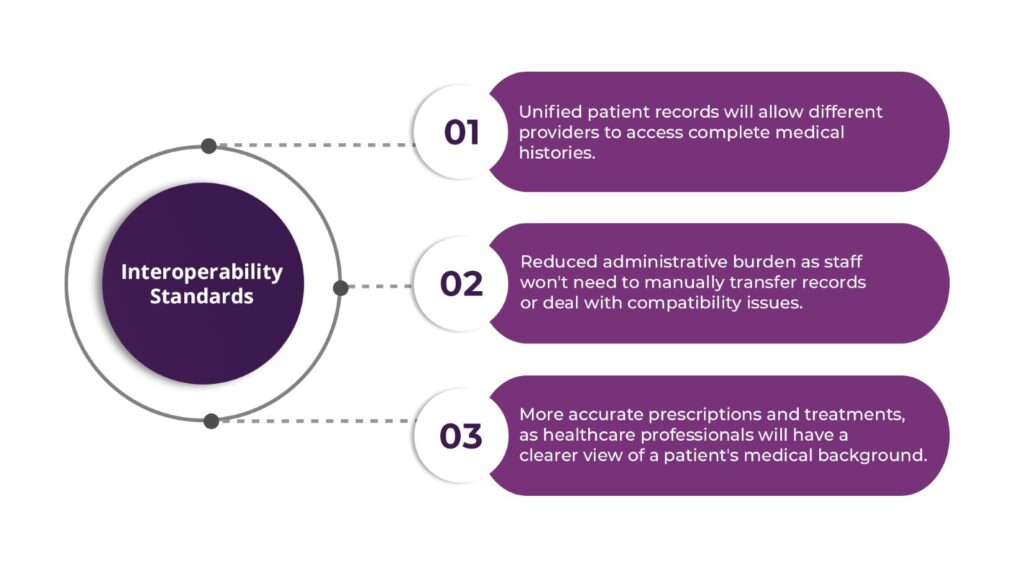
5. Personalized and Patient-Driven EHRs
Today, patients are becoming more involved in their healthcare decisions, and cutting-edge EHRs will reflect this shift. Therefore, the emergence of patient-centered EHR platforms will grant individuals greater control over their medical records.
How This Will Change Healthcare:
- Electronic Health Record systems with mobile access will allow patients to review their records, track prescriptions, and schedule appointments conveniently.
- Wearable device integration will feed real-time health metrics into EHRs.
- Digital consent management will let patients decide who can access their records, boosting data privacy.
By involving patients more actively, these systems will improve engagement and adherence to treatment plans.
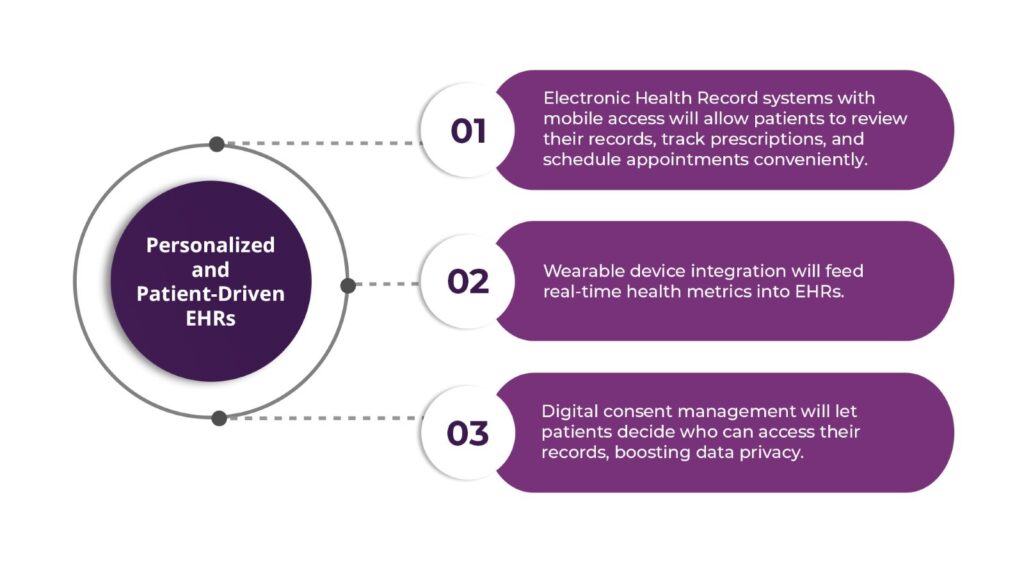
6. The Expansion of Telehealth Integration
Telehealth usage has surged recently, and EHRs are evolving to better accommodate virtual consultations. Additionally, present EHR systems also offer seamless telemedicine integration and bring remote care to the forefront.
How This Will Change Healthcare:
- Embedded video call functionality will allow physicians to consult with patients directly within the EHR system.
- AI-powered symptom analysis will guide telehealth consultations by pre-screening patients based on their medical histories.
- Automated follow-ups and reminders will improve post-consultation care.
With these integrations, telehealth will transition from an emergency solution to a mainstream healthcare option, expanding access to quality medical care.

7. Automation in Billing and Revenue Cycle Management
Billing errors and administrative inefficiencies cost the healthcare industry billions of dollars annually. However, Electronic Health Record systems today feature automated billing systems that streamline financial processes.
How This Will Change Healthcare:
- AI-driven coding assistance will reduce human errors in medical billing and insurance claims.
- Instant eligibility checks will confirm patient insurance coverage before services are provided.
- Automated patient invoicing and payment processing will simplify transactions.
By reducing the complexity of financial workflows, automation will lead to greater transparency and fewer billing disputes.
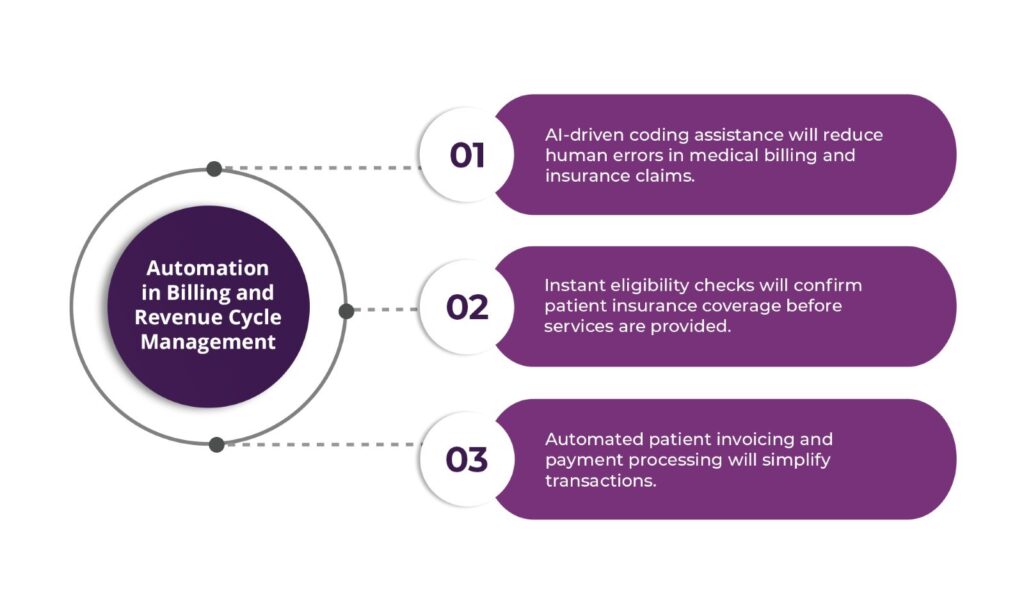
8. Data Analytics for Population Health Management
Electronic Health Record systems are no longer just digital filing cabinets—they are evolving into analytics engines that can predict public health trends and guide policy decisions.
How This Will Change Healthcare:
- Epidemiological tracking will identify disease outbreaks faster and facilitate quicker responses.
- Risk stratification models will highlight at-risk populations and boost targeted preventive care.
- Predictive analytics will optimize hospital resource allocation and reduce overcrowding or wait times.
With smarter analytics, healthcare providers will be able to anticipate and prevent health crises rather than just reacting to them.
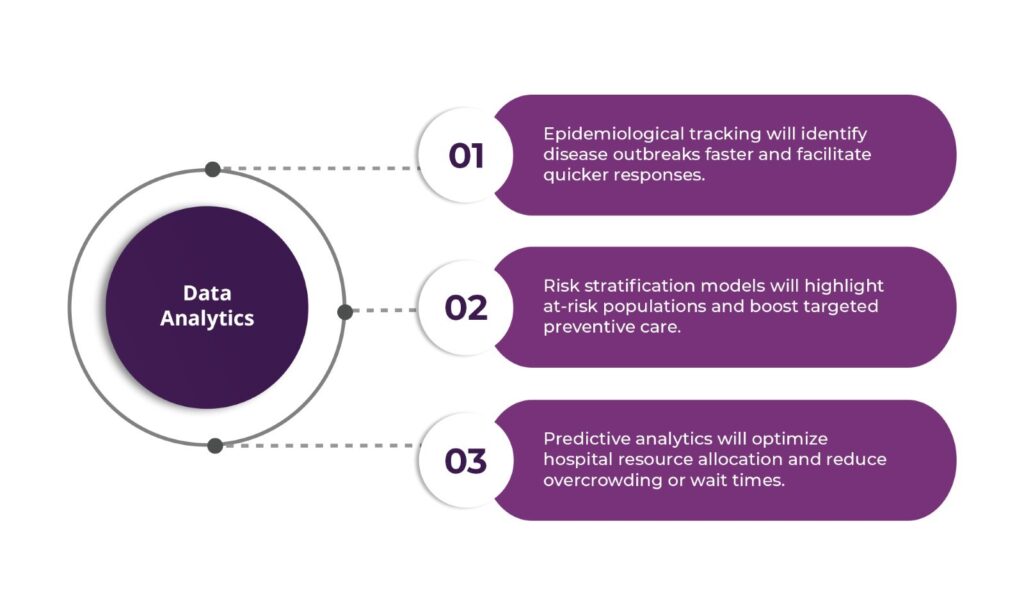
A More Connected and Intelligent Healthcare System
The future of Electronic Health Record systems goes far beyond data storage—it is about intelligence, automation, and accessibility. With AI, DLT, cloud computing, and patient-centered designs leading the way, EHR systems are set to revolutionize healthcare delivery. The coming years will bring a more connected and intelligent healthcare system, benefiting both providers and patients alike.
If you’re looking to optimize your healthcare systems with cutting-edge technology, explore how Helixbeat can help you build a smarter, more connected digital health ecosystem. Contact us today and get a free consultation.
FAQs
1. What role does Distributed Ledger Technology (DLT) play in EHR security?
DLT provides a tamper-proof system for storing and exchanging patient records, reducing fraud risks and granting patients greater control over their medical data.
2. Why are cloud-based EHR systems becoming more popular?
Cloud-based EHRs offer improved accessibility, scalability, and interoperability, thus allowing healthcare providers to access patient records from different locations in real-time.
3. How is telehealth being integrated into EHR systems?
Modern EHRs include telehealth functionalities like embedded video consultations and automated follow-ups to improve virtual care experiences.
4. How do EHR systems contribute to population health management?
EHR analytics help track public health trends, identify at-risk populations, and optimize hospital resource allocation to improve overall healthcare planning.
5. How does interoperability impact Electronic Health Record systems?
Interoperability enables seamless data exchange between hospitals, clinics, pharmacies, and labs, which reduces administrative burdens and improves coordinated patient care.
6. What are patient-driven Electronic Health Record systems, and why are they important?
Patient-driven EHRs give individuals control over their medical records, which help them track prescriptions, schedule appointments, and manage access to their health data.
7. How can healthcare providers leverage technology to optimize their EHR systems?
Providers can adopt AI-driven tools, cloud-based solutions, interoperability standards, and patient-centered designs to improve data accessibility and healthcare outcomes.






